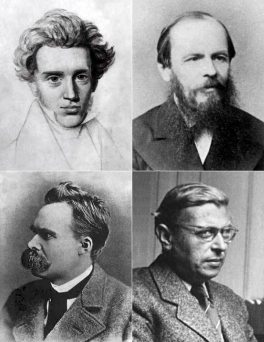 Existential-Phenomenological Theory has been an important model in the field of counseling and therapy for quite some time, and it continues to increase in popularity with new counselors entering the field. The practice of Existential-Phenomenology is a blending of centuries-old wisdom applied to modern day problems. It is foundational to influential therapies used today – like Person-Centered and Gestalt therapies. The goal of an Existential-Phenomenological counselor is to help clients make-meaning of their lives, and so it is reasonable to assume that counselors using this theory must also do the same work. Existential-Phenomenological counselors MUST make their own meanings of this theory and how it applies to their own lives and to their practices so it is essential for counselors who are interested in using this model to learn the philosophical groundwork. Without a philosophical grounding, counselors are simply using techniques – and this is not a technique-heavy model in the least! The importance of this model is the philosophies that substantiate its practice.
Existential-Phenomenological Theory has been an important model in the field of counseling and therapy for quite some time, and it continues to increase in popularity with new counselors entering the field. The practice of Existential-Phenomenology is a blending of centuries-old wisdom applied to modern day problems. It is foundational to influential therapies used today – like Person-Centered and Gestalt therapies. The goal of an Existential-Phenomenological counselor is to help clients make-meaning of their lives, and so it is reasonable to assume that counselors using this theory must also do the same work. Existential-Phenomenological counselors MUST make their own meanings of this theory and how it applies to their own lives and to their practices so it is essential for counselors who are interested in using this model to learn the philosophical groundwork. Without a philosophical grounding, counselors are simply using techniques – and this is not a technique-heavy model in the least! The importance of this model is the philosophies that substantiate its practice.
Some significant contributors in the development of existentialism and phenomenology include but are not limited to: Edmund Husserl, Martin Heidegger, Maurice Merleau-Ponty, Jean-Paul Sartre, Viktor Frankl, and, of course, Søren Kierkegaard. These philosophers explained principles from the earlier writings of Plato, Aristotle, and Thomas Aquinas to name a few. When learning about the philosophical underpinnings of Existential-Phenomenology, it is important to note that counselors must first study existentialism apart from phenomenology and gain an understanding of the backgrounds of contributing philosophers in each of these disciplines. Sounds like quite a feat, and it can seem daunting. However, in upcoming posts, I will break down phenomenology and existentialism in terms of what they mean and how to understand their principles. Stay tuned!
Pingback: Thomas Aquinas on Wisdom by Robert M. Woods | Stepping Toes
Pingback: All I Want Is a Good Night’s Sleep | TalentDevelop